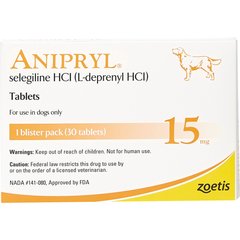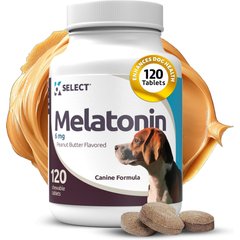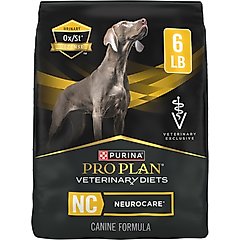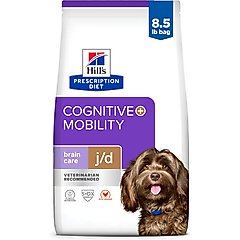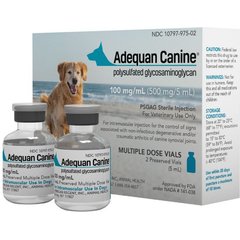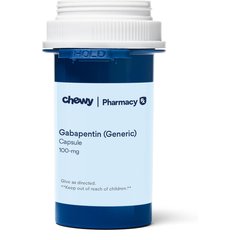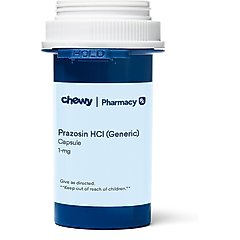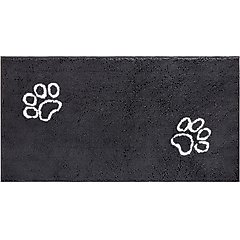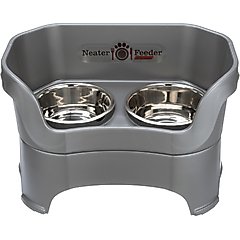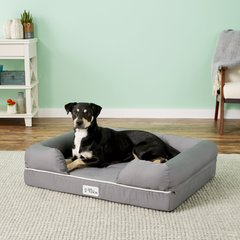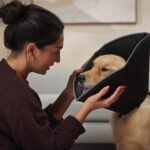Is Your Senior Dog Becoming Aggressive? How to Handle Aggression in Older Dogs
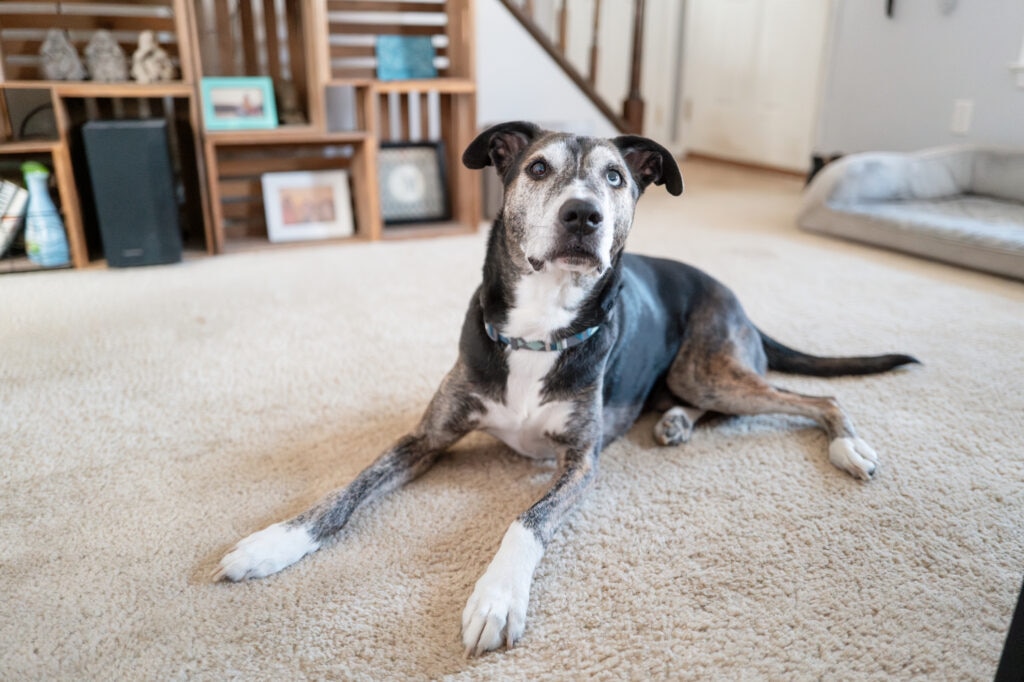
Photo by carlofranco/iStock/Getty Images Plus
Watching your dog grow older can be a bittersweet experience. Because those gray whiskers often come with new care needs, the American Veterinary Medical Association (AVMA) recommends that senior dogs visit the vet at least twice a year.
And while every dog ages differently, if your senior dog suddenly starts showing signs of aggression, it’s essential to recognize that this isn’t just “grumpiness” or a regular part of aging. Sudden aggression in senior dogs often points to an underlying issue.
Here’s how to spot aggression in older dogs, why partnering with your vet is so important, and how simple changes at home can help your dog feel more like themselves while keeping everyone safe.
Why Do Older Dogs Become Aggressive?
Aggression in dogs isn’t always loud or obvious.
It can start with subtle body language and grow into behaviors such as:
- Crouching
- Tucking the tail
- Turning the head away to avoid eye contact
- Sudden stillness
As tension grows, your dog might start growling, baring their teeth, curling their lips, or giving you a stiff, hard stare.
“Aggression is not necessarily abnormal,” says Meghan Herron, DVM, DACVB, a veterinary behaviorist and senior director of behavior, research, education, and outreach at Gigi’s, an Ohio-based dog shelter.
That’s because aggression is a normal form of communication dogs use when they feel uncomfortable, afraid, or threatened, which is all the more reason to tune in and take it seriously.
“But a senior dog who suddenly displays aggression in a situation where they never have before is a big cause for concern,” she says.
“Brushing their behavior off as ‘grumpiness’ risks missing something serious,” adds Dion Studinski, head trainer and founder of Ancillary K9 Dog Training in Denver, Colorado.
Below, we’ll share the most common reasons for sudden aggression in senior dogs. These causes aren’t always either/or, as they can often occur simultaneously.
1. Pain or Discomfort
Pain is a common reason why senior dogs lash out. Dr. Herron says it’s often the number one cause of aggression in senior dogs.
Common sources of pain and discomfort in older dogs include:
- Arthritis
- Dental disease
- Ear infections
- Urinary tract infections
- Anal gland issues
- Itchy skin
- Abdominal discomfort
2. Canine Cognitive Dysfunction
Canine cognitive dysfunction (CCD) affects an estimated 14–35% of senior dogs and impacts brain functions much like dementia does in humans.
In dogs with CCD, sticky protein deposits called beta-amyloid plaques, along with clumps known as neurofibrillary tangles, build up in the brain. These deposits embed into brain cells and, over time, cause damage that leads to cell death, shrinking of brain tissue, and inflammation, explains Lena Provoost, DVM, DACVB, a veterinary behaviorist and assistant professor of small animal behavior at the University of Pennsylvania School of Veterinary Medicine in Philadelphia, Pennsylvania.
Dr. Provoost says CCD primarily affects the areas of the brain responsible for learning and memory. However, the damage is widespread, so CCD can also cause other behavioral changes.
Additionally, Dr. Herron says aggression, anxiety, and agitation are possible. However, she adds, “If aggression is the only change, I would first look for signs of physical discomfort or pain.”
While CCD has no cure and is a progressive disease (symptoms worsen over time), there are treatments available that can slow its progression and ease symptoms.
3. Medical Illnesses
Conditions affecting the brain, such as brain tumors, hormonal imbalances, or other systemic illnesses, can cause behavior change in a senior dog.
4. Medication Side Effects
Some medications can cause changes in mood or behavior. Even injections for arthritis, which typically don’t have mood-altering side effects, may cause temporary pain or swelling at the injection site, potentially leading to pain-induced aggression in senior dogs if that area is touched.
5. Stress
Anything that causes your dog stress, including moving, a new family member or a loss of one, or changes in routine, can trigger fear-based aggression in dogs.
How To Handle Aggression in Senior Dogs
Before addressing aggression in a senior dog, you need to identify the root cause.
Studinski explains that aggression in older dogs might follow several pathways:
- Fear-based aggression often involves avoidance or freezing
- Pain-based aggression occurs when the dog is touched or moved
- Confusion from canine cognitive dysfunction (CCD) can lead to unpredictable behavior
The first step is always a visit to the vet to rule out medical issues. This typically includes a complete physical exam and blood work.
Once you know the cause, you can choose the right course of action, whether that’s medical treatment, changes at home, training support, or a mix of all three.
Medications, Supplements, and Prescription Diets
Dr. Provoost often prescribes medications alongside diet, exercise, and lifestyle adjustments to keep both the brain and body working at their best.
Cognitive Support
- Selegiline: The only FDA-approved drug for managing CCD; vets more commonly prescribe generic Anipryl.
Recommended Products
- Melatonin: When recommended by your veterinarian, melatonin may help your senior dog sleep better through the night.
Recommended Product
- Hill’s Prescription Diet b/d: A therapeutic diet formulated to support cognitive function.
- Purina NeuroCare: A diet designed to promote brain health in senior dogs.
Recommended Product
Joint Support
- Hill’s Prescription Diet j/d: A therapeutic diet formulated to support joint and cognitive function.
Recommended Product
Recommended Product
- Fish oil supplements: In addition to supporting joint health, fish oil supplements, such as Native Pet Omega-3, can also enhance heart, skin, and coat health.
Recommended Product
Pain Management
Your vet may prescribe pain meds depending on any underlying health issue diagnosed in your senior pup. Common pain medications for senior dogs include:
- Non-steroidal anti-inflammatory medications (NSAIDs)
- Gabapentin
Recommended Product
Recommended Product
Never give your dog medication without direction from your veterinarian.
Consistent Exercise
Your aging dog may no longer run 5 miles, and they might move more slowly or even stop initiating play, but Dr. Provoost says that doesn’t mean they no longer need exercise or mental stimulation.
Staying active helps keep both their body and mind in good condition. We just need to find new ways to meet their changing needs.
Dr. Provoost suggests swapping that long run for a slow walk around the block. “You can make it more motivating by adding fun scents sprayed on the ground or tossing kibbles or treats for them to find,” she says. And rather than chasing a ball, they might enjoy rolling a plush toy instead.
Recommended Product
Routine Schedule
Studinski says you can help reduce your senior dog’s anxiety by keeping life consistent.
Consistency might mean hosting fewer gatherings, asking guests to help maintain a calm atmosphere, and making sure children don’t overwhelm your dog. If your pup is sensitive to visitors or other pets, provide them with a quiet room.
Minor adjustments, such as non-slip dog rugs, elevated dog bowls, and orthopedic beds, can make a significant difference in making your senior dog more comfortable.
Recommended Products
Keeping Your Senior Dog and Others Safe
Dr. Provoost says her goal is to help dogs age gracefully without ever needing to resort to aggression, though it happens more often than many pet parents realize.
You know your dog better than anyone, so trust your gut. If you notice even subtle changes in their behavior, mood, or energy, check in with your vet.
The sooner you catch pain or illness, the better your chances of getting ahead of the issue and preventing aggression before it starts.
How To Handle Aggression in Older Dogs FAQs
Why is my senior dog suddenly aggressive?
Sudden aggression in senior dogs is often a response to pain, illness, stress, or canine cognitive dysfunction (CCD), which can impact mood and behavior. If you notice changes in your dog’s mood, activity, or behavior, contact your vet.
How can I help a senior dog with aggression?
You can help prevent and manage aggression in senior dogs by working with your vet to rule out and treat pain or illness, start medications to ease CCD symptoms, and minimize stress at home with a calm, comfortable environment and predictable routine.

